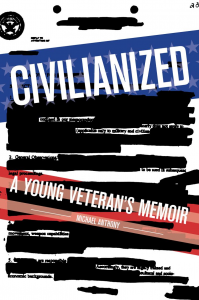Post-Traumatic Stress Disorder (PTSD) is a mental illness that results from a highly stressful, traumatic, and life-threatening experience. It is important to note that not every individual who experiences a traumatic event will suffer from PTSD. It all depends on the mental state, overall mental health of the sufferer, the trigger, as well as other risk factors that an individual is exposed to i.e. alcoholism, drug addiction, genetics, the lack of family and friends, disaster, calamity, etc.
Signs of PTSD
PTSD manifests itself to the sufferer in different ways i.e. flashbacks, nightmares, hyperarousal, etc. External signs of PTSD vary from person to person. Signs usually include increased wariness, jumpiness, a sudden change in behavior, paranoia, violence, etc.
US Veterans
When we talk about US war veterans, we talk about any war or armed exercise that the United States has been involved in, whether in the past or recently. This presupposes that there is still a survivor of the said war. Sufferers are not limited to combat personnel. PTSD can also be experienced by medics, chaplains, nurses, administrative personnel, etc. This includes any situation, exercise and military incursion wherein any serviceman is exposed to a traumatic experience.
These include, but are not limited to:
- Vietnam war
- Panama invasion
- Gulf War
- Somali civil war
- Iraq war
- Afghanistan war
- Pakistan war
PTSD Statistics
A recent study shows that around 60% of men and 50% of women will experience some sort of trauma in their lifetime. Because of the nature of PTSD, a substantial percentage of sufferers include war veterans. It is estimated that 20% of US soldiers who were deployed in Iraq and Afghanistan suffer from PTSD. This translates to around 2.7 million veterans. Going further back, there were around 8.2 million soldiers deployed in the Vietnam War. Roughly 2.6 million of these war veterans developed some form of PTSD.
PTSD as a Curable Mental Illness
PTSD has been present in every armed conflict or war that humanity has been involved in. However, in the United States, it was only during World War I when PTSD came into center stage. Previously, people who showed signs of PTSD were thought to be psychologically lacking, even brain damaged i.e. weak-willed, weak-minded, and emotionally unstable.
Gradually, psychiatrists came to realize that experiences trigger emotions, which in turn lead to “shell shocked” soldiers. In other words, being shell shocked does not stem from psychological inadequacy, from a mental illness. This point of view was the start of what is known today as PTSD. More importantly, physicians realized that this illness is curable, with pre- and post-management and medication.
Management and Care
PTSD management and care is a mixture of proper care, medication and support. The military has its own department when it comes to identifying, caring for and managing PTSD veterans. Some methods for PTSD management and care include psychological therapy, cognitive behavioral therapy, eye movement desensitization and reprocessing, interpersonal psychotherapy and medications (i.e. Benzodiazepines, Glucocorticoids, Cannabinoids).
Alternative Forms of Therapy
These forms of therapy are best utilized to augment mainstream PTSD management and care. These include but are not limited to exercise, sports, as well as taking up some form of physical and mental activity.
Expressive Writing and PTSD
One way to speed up the process of healing is to write about the experience. Writing helps because the sufferer controls the flow of thought and the detail to be put in. The sufferer is encouraged to start with a single word and progress slowly. At first, the sufferer does not even have to write chronologically. Snippets of thought are enough. The sufferer is then encouraged to add details then arrange the same in a manner through which he is most comfortable in, i.e. chronological, importance, shock factor, etc.
When asked why it works for some, one proponent, who also suffered from PTSD says: “You control what you write. You control what you disclose. You control the memories that you want to put forth. This control helps empower the sufferer, who, for all intents and purposes, has lost control over his emotions, to the traumatic event/s of the past.”
Case Study
Studies show that expressive writing does not exacerbate the symptoms of PTSD. On the contrary, it actually helps improve the overall mood of the individual. In addition, a significant number of psychiatrists observed a positive increase in post traumatic growth. Needless to say, a person suffering from PTSD is encouraged to seek the advice of a licensed psychiatrist who specializes in the same disorder.
Civilianized: A Young Veteran’s Memoir
In this dark humored War Memoir, Iraq veteran Michael Anthony discusses his return from war and how he defeated his PTSD. Civilianized is a must read for any veteran, or anyone who knows a veteran, who has returned from war and suffered through Post-Traumatic Stress Disorder (PTSD).
“I wont soon forget this book.” -Mary Roach
“A must read.” -Colby Buzzell
“[S]mart and mordantly funny.” –Milwaukee Journal Sentinel
“Anthony delivers a dose of reality that can awaken the mind…” Bookreporter
Order your copy of Civilianized: A Young Veteran’s Memoir .
